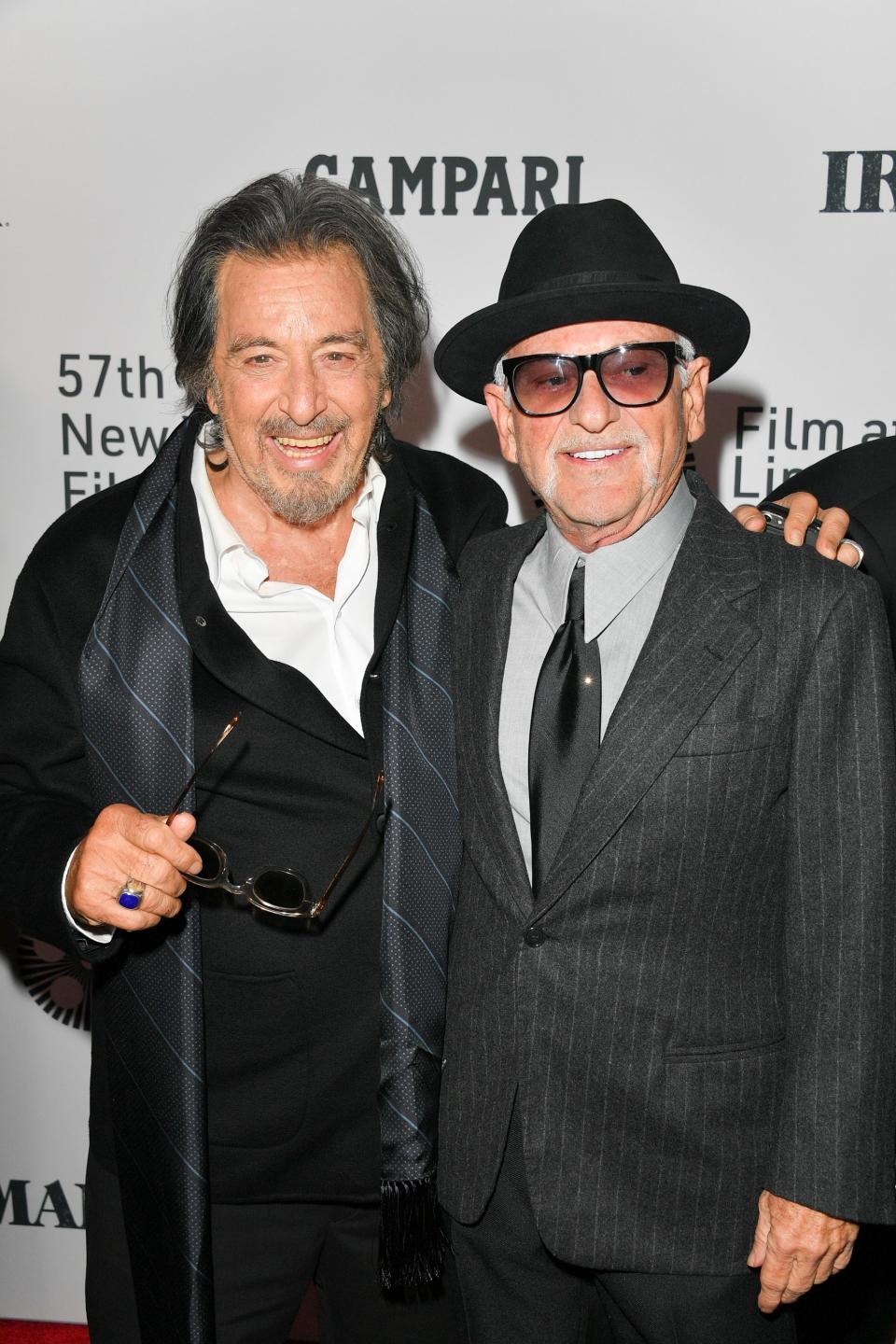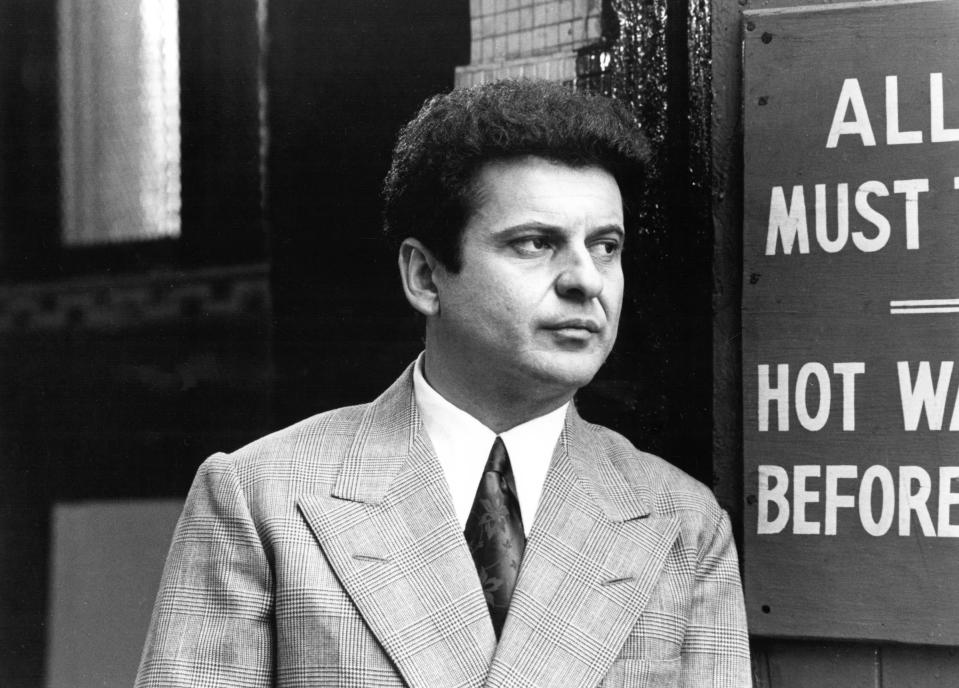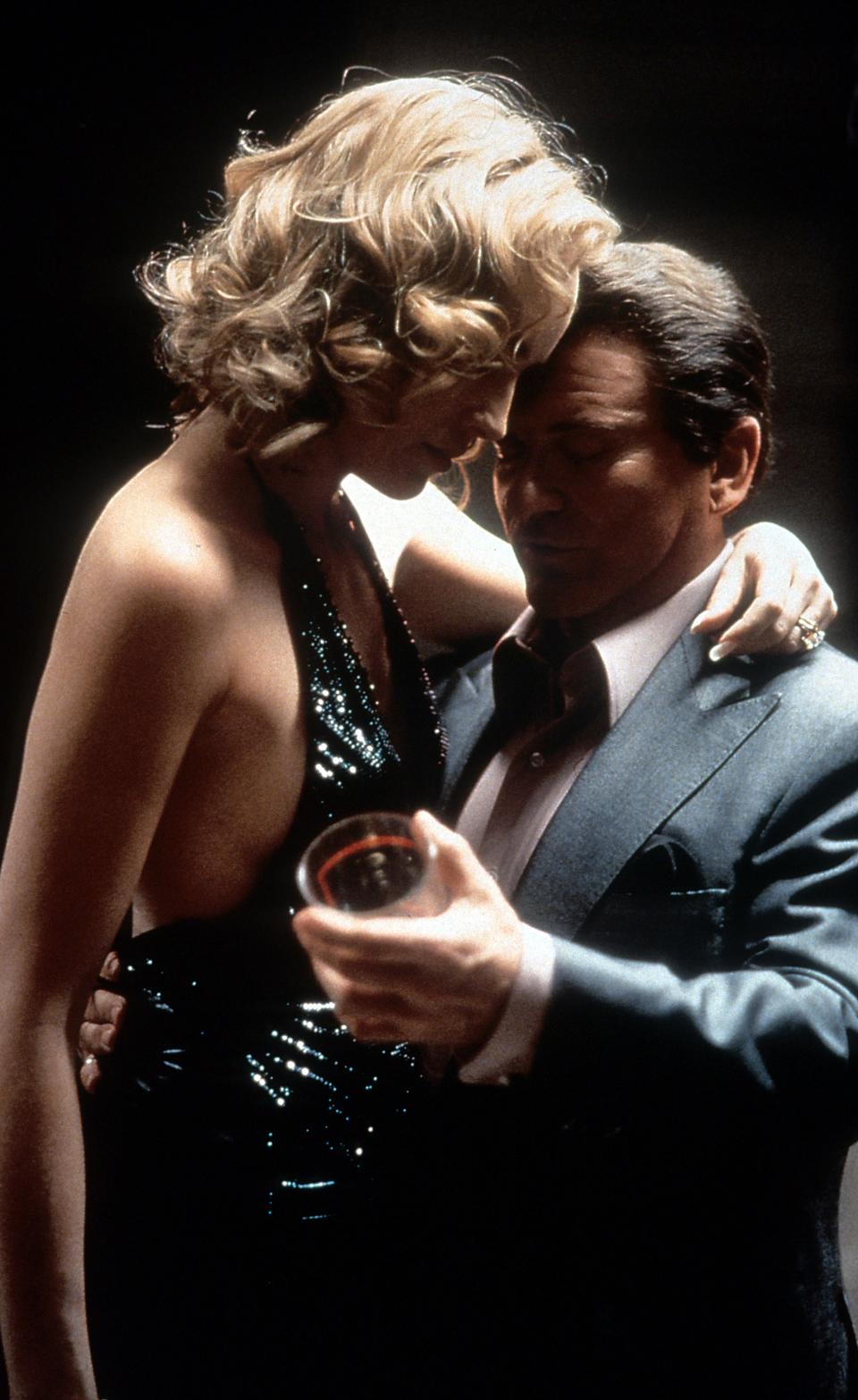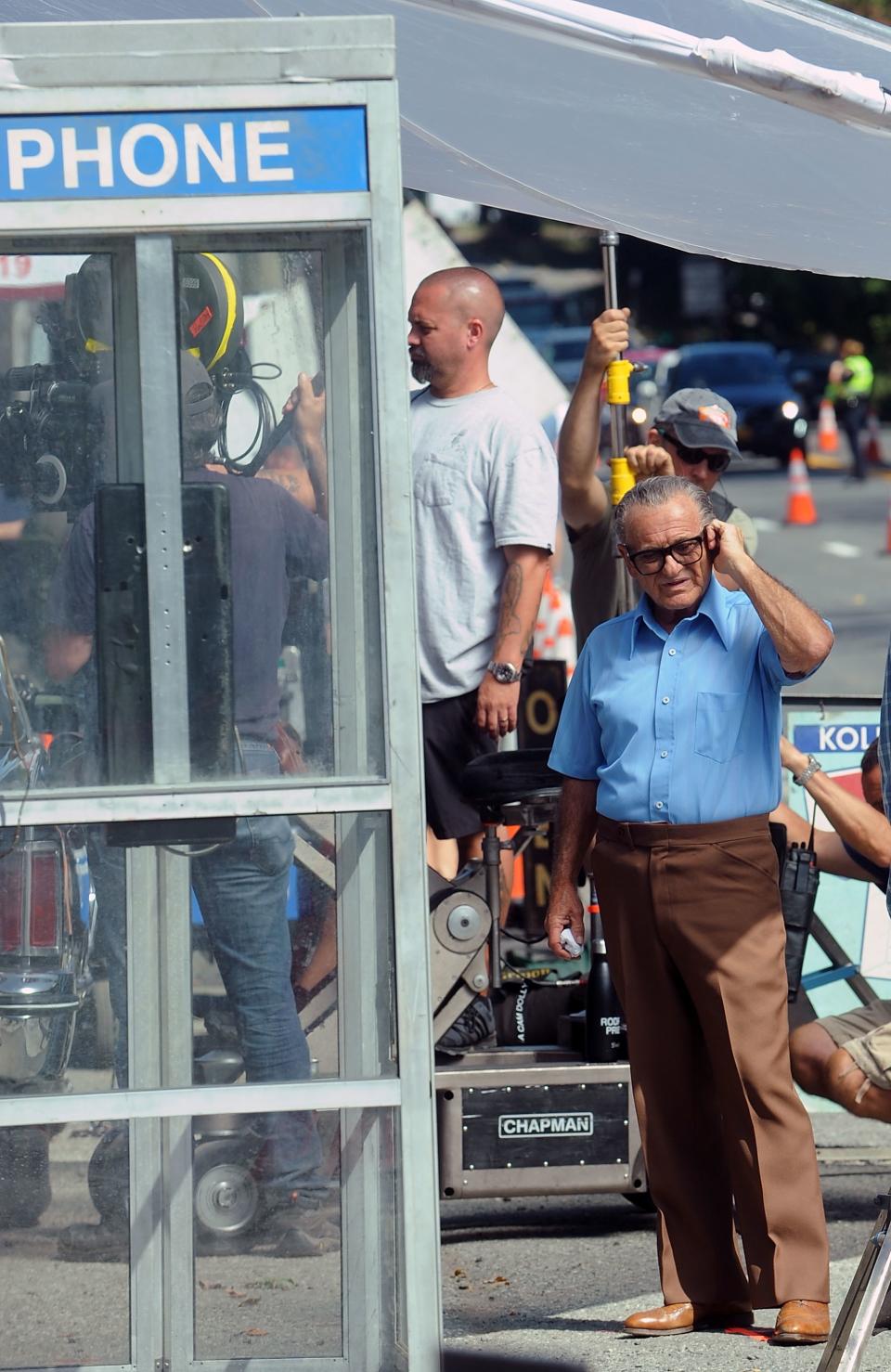Joe Pesci’s Pointy-Collared Shirts Are the Scariest Garments in Cinema History
Brand Loyalty is a column that explores our cultural obsession with brands—like Kanye West’s discovery of Vetements, Kristen Stewart’s interest in Outdoor Voices, or the brief golden era of fashion cellphones.
Joe Pesci is an incantation. Just say his name and everything appears: the smokey room, the playing cards, the Cutty Sark and water with no ice, the golf polo, the fedora, the gun. Or the explosions of rage. Of course, in interviews, Joe Pesci barely says a thing. He doesn’t need to. He knows the economy of cool. On the Late Show in the mid-90s, Letterman asks him if he’s good at golf, and Joe Pesci says he shoots a sixteen handicap. “I don’t know what that means,” Letterman says. “Is that good?” Pesci glances at the cigar, shrugs. “Well, I’m sorry,” and takes a long drag.
Joe Pesci is a man who knows what he wants and knows everything he’s about. When Joe Pesci plays golf, he’s going to smoke. When Joe Pesci goes on Letterman, he’s going to curse. When Joe Pesci is going to break a rib on the set of a Scorsese film, he’s going to break the exact same rib he broke the first time, 15 years before, which, if you’re Joe Pesci, seems less like a coincidence and more like a commitment to precision. What a weirdo. What a wild card. What a king.
Joe Pesci is a genius we hadn’t seen in two decades until Martin Scorsese pulled him out of retirement for The Irishman. But even in retirement, Joe Pesci remained a man with potent style and charisma. Not a fashion icon, but something bigger and better: a man with a look, onscreen and off (mostly on the golf course). Wild black pompadour. That no-bullshit pout. A short guy, I guess, at 5’7’’, but that doesn’t seem quite right. It’s more like he’s compact, with total control over some terrifying energy just underneath. He’s loose and wacky in black leather jackets in My Cousin Vinny, and a coil of well-tailored psychopathy in Scorsese’s Goodfellas—and almost always in a giant spearpoint collar, its sharp leaves plunging down between the lapels of his jacket like two medieval spearheads. It might be the most terrifying garment in cinema history: if Joe Pesci is wearing the spearpoint collar, you know he might kill you. It isn’t that Joe Pesci is always looking for a fight. It’s that—well, I can’t really put it into words, so I’ll let the collar do the talking.

The collar that Pesci loves is the product of a bit of Scorsese lore—the director’s father pressed clothing and his mother was a seamstress, and his longtime costume collaborator, Richard Bruno, crafted them specially for most of the cast of Goodfellas, which apparently led to a minor vogue for them in the early ’90s. But the collar was also a staple of New York gangster style in the first half of the 20th century, when suity bravado was a part of the whole threatening package. The spearpoint collar telegraphed class, in that ironically garish sense of the word, and that other great mafia passion, laundry. And while photographs of Frank Costello, Al Capone, and Baby Face Nelson suggest the spearpoint collar was a mugshot staple, Bruno seems to have exaggerated it to outlandish proportions, particularly on Pesci. “Bruno consciously designed the mob attire to echo that of an earlier period,” Variety wrote of the designer’s costumes for Goodfellas, when Bruno died in 2012, “with collars that hide the top part of tie [and] a tab added to the double-lock collar to line up the steep collar points.”
The spearpoint collar is best known from Goodfellas, but Pesci started wearing them in his first Scorsese film, 1980’s Raging Bull, which was also a Bruno production. There’s something wild, unhinged about the collar’s maniacal perfection. As the film is set in the ’40s and ’50s, lots of other wiseguys and mob-adjacent guys are wearing them, too. But Pesci’s is huge. There’s barely a spread, so the tie bursts out of it—a foreshadowing of his whole persona.

As Pesci skittered across the century in a series of other Scorsese films, the spearpoint collar became his signature, regardless of the period in which the film takes place. Even as, in Goodfellas, the collar becomes fashionable again —a louche, undone lounge lizard eccentricity taken up by Ray Liotta’s Henry Hill and Robert DeNiro’s Jimmy Conway in the 1970s—Pesci sticks with the spearpoint, starched to outrageous, terrifying perfection. It’s like he’s always living in the mafia golden era, when the mob was king and the collars were big, even if every movie he’s starred in has taken place after the collars were in style.
But even when everyone else is wearing them, too, they do something more for Pesci. As he holds court in the infamous Funny how seen, needling Henry Hill about being funny like a clown?, his collar points are fangs that could sink into anyone (as it turns out, not Harry, but the restaurant owner who pesters him about the bill a few minutes later). Later, when he’s tricked into thinking he’s going to get made but gets shot in the head instead, it’s almost cartoonishly huge, like a neckbrace, or an exaggerated priest’s collar—reverent, protective, proud, and corrupt. In Casino, it’s constricting, threatening, imposing. He unbuttons it to steal his friend’s wife, but it remains a hand around his neck, growing tighter and tighter until he’s actually buried alive. And of course he wears one in The Irishman, as mob boss Frank Bufalino, with wild patterned ties that Pesci himself insisted on. He’s the eldest, the most important—why wouldn’t he have the biggest collars?


Pesci, shorter and wilder-looking than most movie stars, is the kind of guy who might reach for well-tailored clothes to make him look taller, or thinner, or bigger, all of which extremely pointy collars purport to do. But Pesci doesn’t really have the air of someone who has problems to solve. A few minutes into his Letterman interview, he tells a story about a guy standing outside of Radio City Music Hall who called him a wiseguy as he walked by, so “I gave him a f*cking slap—” He stops himself, realizes he just swore on television, says, “Oop,” and just walks offstage with his jacket yanked over his head for protection. Clothes are either armor or weapons. For Joe Pesci, they are always both.
Originally Appeared on GQ

